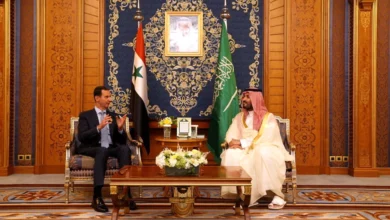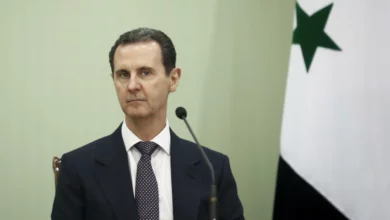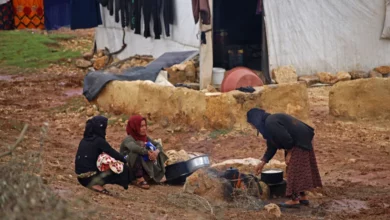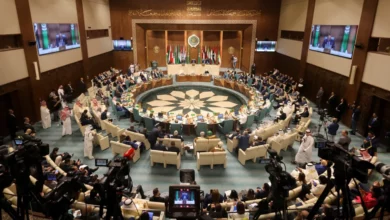The first Arab Book Fair opened on Thursday morning at the Cairo Opera House's Gezira Garden, with Cairo Governor Abdel Kawi Khalifa promising to hold the event annually.
The fair is envisioned as one way to compensate publishers for lost revenues after the cancellation of the Cairo International Book Fair in January.
Mohamed Rashad, President of the Federation of Egyptian Publishers, which is co-sponsoring the event, expressed his hope that the Arab Book Fair would make up for losses incurred by Egyptian and Arab publishers. "Failure to hold the Cairo International Book hurt a lot of publishers; some lost expected profits; others even lost their clients because they revoked contracted agreements," Rashad explains.
One-hundred-and-twenty Egyptian publishing houses responded to the organizer's call and are participating in the fair. Additionally, six Arab publishers are taking part, including The South Sudanese International Publishing Corporation, the King Faisal Centre for Research and Islamic Studies, the Iraqi al-Bassa’ir Center, the Carthage International Center for Publishing, and Ibn al-Nafis publishing house.
But the Arab Book Fair is also unique because it is the first fair to be organized by a privately owned publishing house, the newly established Waad, while the Culture Ministry, represented by the General Egyptian Book Organization (GEBO), is sponsoring the event by providing bookstands for publishers.
"This book fair reflects a change in publishing practices and of the understanding of the role of publishers in Egypt. A publisher’s mission is no longer limited to printing books,” says Jumaili Ahmed, director of the book fair and owner of Waad. He added that he met bureaucratic obstacles when he proposed the idea last year.
Describing the Arab Book Fair as a "crazy idea that will push culture to the foreground,” Rashad said that the fair was proof that the mentality of state officials has changed since the revolution.
Ahmed Megahed, head of the GEBO, praised the fair as a sign of innovation, saying that the social and economic development of Egypt could not happen without a cultural renaissance.
In reference to the GEBO’s withdrawal from the Syrian Lion Book Fair, Megahed said that the GEBO supports the position of the Federation of Egyptian Publishers to boycott the fair. Without referring directly to the Syrian book fair, Megahed added that the GEBO does not represent Egypt in Arab book fairs through its collections alone, but uses books by private publishing houses as well.
“Conflicts between the GEBO and publishers are a thing of the past; now the organization provides complete support to the Federation of Egyptian Publishers,” he said.
The Arab Book Fair was timed to coincide with the Assad Book Fair, says Ahmed. In an interview with al-Sah’ir News Agency, Ahmed described the event in Cairo as a strong message to the Assad regime that “there are true intellectuals and publishers who refuse to cooperate with it.”
A number of cultural activities, ranging from poetry recitals to theater performances and panel discussions, will be held in parallel to the book event.
Among the most prominent poets participating in these activities are Ahmed Abdel Muti Hijazi, Sayed Hijab, Abd al-Rahman al-Yusuf, Ahmed Bakhit, Levi Zafiri from Bahrain, the Moroccan Najat Yassin and Aziza Ohoudeh Omar, as well as Saad al-Buraq, Hazam al-Otaibi, Ali al-Robai and Gharm Allah Hamdan al-Saka’y from Saudi Arabia.
The Arab Book Fair runs until 18 September and is open daily from 11 am until 11 pm.




